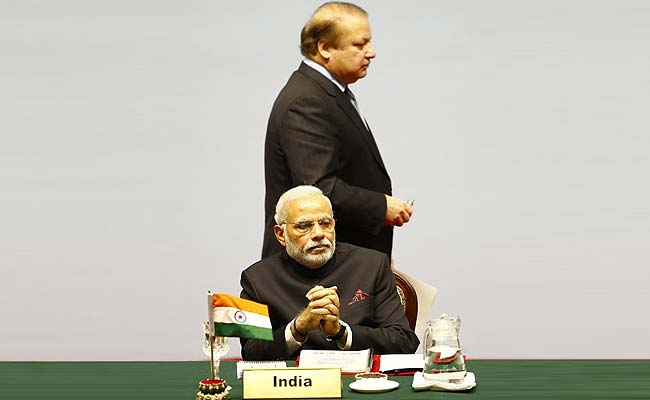
As Prime Minister Narendra Modi pulled out of the regional SAARC summit in Islamabad in the aftermath of the terror attack in Uri, leading to its boycott by three other nations, Pakistan hinted that the session, due in November, may be postponed. Nepal, which is chairing the summit, said it strongly urged the creation of a "conducive environment" that will ensure the participation of all.
Here are the 10 big developments in this story:
"As per SAARC (South Asian Association for Regional Cooperation) rules, the Summit will not be held if any member-country refused to attend," Pakistan's top foreign affairs official Sartaj Aziz said, adding they did not receive any formal communication. He added that it was not the first time India was not attending the regional summit and it had earlier caused the summit to be postponed four times.
Foreign ministry spokesperson Vikas Swarup said there was "no option but to postpone" the summit, since three other countries have said they were unable to participate. But a formal communication, he said, will come from Nepal, he said.
Later in the evening, Nepal confirmed that Afghanistan, Bangladesh, Bhutan and India had conveyed their inability to participate in the summit stating that the current regional environment is "not conducive" to it. "Nepal strongly urges that a conducive environment be created soon to ensure the participation of all member states," a communique said.
Prime Minister Narendra Modi -- who said Uri attack will not go unavenged -- will meet top leaders later today to review whether to also downgrade Pakistan's status as a trading partner. In 1996, India conferred Most Favoured Nation (MFN) status on Pakistan in keeping with World Trade Organization guidelines. Pakistan did not reciprocate.
On Tuesday night, India said it cannot attend the SAARC's November meeting in Islamabad. Of SAARC's eight members, Bangladesh, Afghanistan and Bhutan followed India in pulling out of the meet, all blaming Pakistan for inciting violence. Afghanistan spoke of "imposed terrorism" on its people.
The boycott is a big thrust in India's campaign to globally isolate Pakistan after terrorists from across the border crossed into Kashmir earlier this month and killed 18 soldiers at an army camp in Uri.
PM Modi has also considered other retaliatory moves to penalise Pakistan, including announcing that India will move to "maximise" the amount of water it is entitled to as part of the decades-old Indus Waters Treaty.
Officials said though it is unlikely, they cannot at this stage rule out that India will renounce or abrogate the treaty. Sartaj Aziz has said that would equate "an act of war" and has sought the intervention of international agencies including the World Bank.
It was the World Bank that negotiated the Indus Waters Treaty that was signed in 1960. Pakistan was given 80% of the rivers that flow into it - the Chenab, Indus and Jhelum. So far, India has not utilized its share completely, allowing Pakistan to benefit from the surplus.
On Monday night, Foreign Minister Sushma Swaraj led India's campaign against Pakistan at the United Nations General Assembly and warned that "Jammu and Kashmir is an integral part of India and will always remain so."

